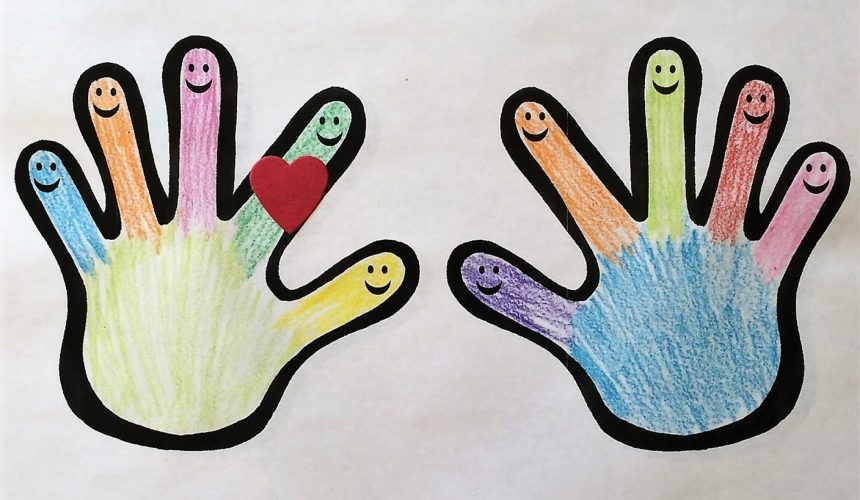THEME: Jesus loves a thankful heart
The simple things: Teaching children and reminding some adults the simple things of PLEASE and THANK YOU
“Your faith has made you well”
Wasn’t the Samaritan already made well?
There is a difference between “being cured” and being “made well”
It was not his faith in the healing power of God- it was his thanksgiving
Do we remember that God is the source of blessing
Can God be the source of blessing and not the source of woe (even via passivity)?
Faith is something lived – in thankfulness
You have probably noticed how regularly the Gospel returns to the theme of radical inclusivity. There is a stark contrast between the religious leaders of the Old Testament who drew lines between ‘clean’ and ‘unclean’ and ‘in’ and ‘out’, and the prophets who called for all people to be welcomed and treated with justice, grace, and dignity. There is a stark contrast between the way the religious leaders of Jesus’ day drew lines of division between those who were acceptable (in their eyes) to God and those who weren’t, and the way Jesus welcomed, healed and served all people, regardless of race, nationality, language, economic position, gender, or religion. If our religion leads us to live with anything less than the radical inclusivity of Jesus, we have missed the point of the Gospel.
It’s easy to speak of how all people are equally loved by God, and how all people are connected and essentially the same. But these words only really make sense when we start to act them out. This means that we must be willing to give up anything that we think makes us ‘better’, or ‘special’, or separate from others, while honouring the uniqueness and dignity of each person on their terms. It takes a loving, servant heart to recognise that some people require more care or sensitivity because of how they have been marginalised or hurt, while being willing to give up any desire for such special treatment for ourselves. Yet, this is what Jesus did.
This week, we will be wrestling with what it means to love and serve others in a way that honours them and gives them dignity.
Reflect: It is significant that the group of Jewish lepers in today’s story included one Samaritan. Under normal circumstances, Jews did not associate with Samaritans. But once they had been cast out of decent society because of their illness, these Jewish lepers could no longer to be exclusive. When the healing happened, though, the Samaritan had much more to be thankful for. Jesus had made no distinction between him and the Jewish sufferers. He healed them all and told them all to go to the priests. In this way he indicated that the Samaritan was included in God’s people, just as the Jews were.
This was probably the first time the Samaritan had felt so accepted.
No wonder he ran back to Jesus to say thank you!
Notice how, when he comes back to Jesus, there is little concern with his nationality – except to express surprise that he is the only one to give thanks. And then, even though he had already been healed, Jesus says that his faith has healed him. What a curious statement, considering that the Samaritan did nothing to express faith, except to go with the others to the priests and to return to give thanks after he was healed. Perhaps Jesus was referring here not to the healing of his leprosy, but of his exclusion from God’s grace and love. When he returned, the Samaritan obviously believed that Jesus would welcome him back – which not many Jews would have done. This faith healed his social exclusion as much as his physical ailment had been healed.
How can you express faith in God’s indiscriminate welcome today?
How can you extend God’s welcome to others?
Do: One of the simplest and most powerful ways we can show God’s love for others is by treating them with dignity, no matter who they are or what their relationship to us. When we take time to notice, greet and meet the eye of those around us – especially those who serve us – and when we speak kindly and patiently with them – even when we feel we are not being well treated – this gives them dignity and shows God’s love. Today, work hard to treat everyone with dignity and respect.
Pray: As you have welcomed me and given me dignity, O God, so I do the same for those around me
Our readings remind us that wherever we are hemmed in and restricted, God is there in freedom. Jeremiah writes to the Jews in Babylon that they are to make a home in the very place to which they have been exiled—and they are to pray for this city! The author of 2 Timothy writes of his chains as a life-giving and freeing participation in the rejection and death of Christ Jesus. To lepers who must keep their distance from everyone, Jesus speaks words of healing, demolishing the distance between them. However, we may be bound, “the word of God is not chained” (2 Timothy 2:9), and the locked iron door of impossibility swings open. Giving thanks and praise, Amen!

